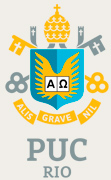Vol. 38, N° 2, May/Aug, 2016
UNASUR: Regional Pluralism as a Strategic Outcome
Detlef Nolte and Nicolás Matías Comini

Abstract
South America features a very particular regional architecture, one which is characterised by the proliferation and overlapping of regional organisations, with UNASUR at the centre. UNASUR is an intergovernmental organisation with no supranational institutions. The article will argue that institutional flexibility, which is both a core element of South American regionalism and a specific institutional feature of UNASUR, corresponds with the key interests of the founding members of this organisation. Based on this assumption, the article will analyse the strategies and policies of the various Argentinean governments during the period when UNASUR was created (1999– 2008). It will differentiate between a ‘uniaxial’ regional integration approach structured around one thematic axis and a ‘multiaxial’ approach evolving along multiple axes in parallel; it will also ask to what extent the new regional architecture corresponds to the core interests of that country. For the Argentinean government, it was important to ensure that UNASUR would not constrain its foreign policy options. The result was the variable geometry codified in the UNASUR Constitutive Treaty.
Keywords: Regionalism; Integration; UNASUR; South America; Argentina.
DOWNLOAD: UNASUR: Regional Pluralism as a Strategic Outcome
 Instituto de Relações Internacionais
Instituto de Relações InternacionaisRua Marquês de São Vicente, 225 - Vila dos Diretórios, Casa 20, Gávea - Rio de Janeiro - RJ, Brasil
Tel/Fax: +55 21 3527-1557 3527-1558 3527-1560

